- By theme
- Jesus
- The many proofs of Christ’s resurrection
- Saint Thomas Aquinas: God gave all the divine proofs we needed to believe
- The surpassing power of Christ's word
- Lewis’s trilemma: a proof of Jesus’s divinity
- God saves: the power of the holy name of Jesus
- Jesus spoke and acted as God's equal
- Jesus' divinity is actually implied in the Koran
- Jesus came at the perfect time of history
- Mary
- The Church
- The Bible
- The authors of the Gospels were either eyewitnesses or close contacts of those eyewitnesses
- Onomastics support the historical reliability of the Gospels
- The New Testament was not altered
- The New Testament is the best-attested manuscript of Antiquity
- The Gospels were written too early after the facts to be legends
- Archaeological finds confirm the reliability of the New Testament
- The criterion of embarrassment proves that the Gospels tell the truth
- The dissimilarity criterion strengthens the case for the historical reliability of the Gospels
- 84 details in Acts verified by historical and archaeological sources
- The unique prophecies that announced the Messiah
- The time of the coming of the Messiah was accurately prophesied
- The prophet Isaiah's ultra accurate description of the Messiah's sufferings
- Daniel's "Son of Man" is a portrait of Christ
- The Apostles
- The martyrs
- The protomartyr Saint Stephen (d. 31)
- Polycarp, bishop of Smyrna, disciple of John and martyr (d. 155)
- Saint Blandina and the Martyrs of Lyon: the fortitude of faith (177 AD)
- Saint Agatha stops a volcano from destroying the city of Catania (d. 251)
- Saint Lucy of Syracuse, virgin and martyr for Christ (d. 304)
- Thomas More: “The king’s good servant, but God’s first”
- The martyrdom of Paul Miki and his companions (d. 1597)
- The martyrs of Angers and Avrillé (1794)
- The Martyrs of Compiègne (1794)
- The Vietnamese martyrs Father Andrew Dung-Lac and his 116 companions (17th-19th centuries)
- He braved torture to atone for his apostasy (d. 1818)
- Blaise Marmoiton: the epic journey of a missionary to New Caledonia (d. 1847)
- José Luis Sanchez del Rio, martyred at age 14 for Christ the King (d. 1928)
- Saint Maximilian Kolbe, Knight of the Immaculate (d. 1941)
- The monks
- Saint Anthony of the Desert, a father of monasticism (d. 356)
- Saint Benedict, father of Western monasticism (d. 550)
- Saint Bruno the Carthusian (d.1101): the miracle of a hidden life
- Blessed Angelo Agostini Mazzinghi: the Carmelite with flowers pouring from his mouth (d. 1438)
- Monk Abel of Valaam's accurate prophecies about Russia (d. 1841)
- The more than 33,000 miracles of Saint Charbel Maklouf (d. 1898)
- Saint Pio of Pietrelcina (d. 1968): How God worked wonders through "a poor brother who prays"
- The surprising death of Father Emmanuel de Floris (d. 1992)
- The prophecies of Saint Paisios of Mount Athos (d. 1994)
- The saints
- Saints Anne and Joachim, parents of the Virgin Mary (19 BC)
- Saint Nazarius, apostle and martyr (d. 68 or 70)
- Ignatius of Antioch: successor of the apostles and witness to the Gospel (d. 117)
- Saint Gregory the Miracle-Worker (d. 270)
- Saint Martin of Tours: patron saint of France, father of monasticism in Gaul, and the first great leader of Western monasticism (d. 397)
- Saint Lupus, the bishop who saved his city from the Huns (d. 623)
- Saint Dominic of Guzman (d.1221): an athlete of the faith
- Saint Francis, the poor man of Assisi (d. 1226)
- Saint Anthony of Padua: "everyone’s saint"
- Saint Rose of Viterbo or How prayer can transform the world (d. 1252)
- Saint Simon Stock receives the scapular of Mount Carmel from the hands of the Virgin Mary
- The unusual boat of Saint Basil of Ryazan
- The extraordinary conversion of Michelina of Pesaro
- Saint Peter Thomas (d. 1366): a steadfast trust in the Virgin Mary
- Saint Rita of Cascia: hoping against all hope
- Saint Anthony Mary Zaccaria, physician of bodies and souls (d. 1539)
- Saint Ignatius of Loyola (d. 1556): "For the greater glory of God"
- Brother Alphonsus Rodríguez, SJ: the "holy porter" (d. 1617)
- Martin de Porres returns to speed up his beatification (d. 1639)
- Virginia Centurione Bracelli: When God is the only goal, all difficulties are overcome (d.1651)
- Seraphim of Sarov (1759-1833): the purpose of the Christian life is to acquire the Holy Spirit
- Saint John Vianney (d. 1859): the global fame of a humble village priest
- Gabriel of Our Lady of Sorrows, the "Gardener of the Blessed Virgin" (d. 1862)
- Father Gerin, the holy priest of Grenoble (1863)
- Saints Louis and Zelie Martin, the parents of Saint Therese of Lisieux (d. 1894 and 1877)
- Saint Faustina, apostle of the Divine Mercy (d. 1938)
- Brother Marcel Van (d.19659): a "star has risen in the East"
- Doctors
- The mystics
- Lutgardis of Tongeren and the devotion to the Sacred Heart
- Saint Angela of Foligno (d. 1309) and "Lady Poverty"
- Saint John of the Cross: mystic, reformer, poet, and universal psychologist (+1591)
- Blessed Anne of Jesus: a Carmelite nun with mystical gifts (d.1621)
- Catherine Daniélou: a mystical bride of Christ in Brittany
- Saint Margaret Mary sees the "Heart that so loved mankind"
- Mother Yvonne-Aimée of Jesus' predictions concerning the Second World War (1922)
- Sister Josefa Menendez, apostle of divine mercy (d. 1923)
- Visionaries
- Saint Perpetua delivers her brother from Purgatory (203)
- María de Jesús de Ágreda, abbess and friend of the King of Spain
- Discovery of the Virgin Mary's house in Ephesus (1891)
- Sister Benigna Consolata: the "Little Secretary of Merciful Love" (d. 1916)
- Maria Valtorta saw only one pyramid at Giza in her visions... and she was right! (1944)
- The 700 extraordinary visions of the Gospel received by Maria Valtorta (d. 1961)
- The amazing geological accuracy of Maria Valtorta's writings (d. 1961)
- Maria Valtorta's astronomic observations consistent with her dating system
- Discovery of an ancient princely house in Jerusalem, previously revealed to a mystic (d. 1961)
- The popes
- The great witnesses of the faith
- Saint Augustine's conversion: "Why not this very hour make an end to my uncleanness?" (386)
- Thomas Cajetan (d. 1534): a life in service of the truth
- Blaise Pascal (d.1662): Biblical prophecies are evidence
- Jacinta, 10, offers her suffering to save souls from hell (d. 1920)
- Father Jean-Édouard Lamy: "another Curé of Ars" (d. 1931)
- Christian civilisation
- The depth of Christian spirituality
- John of the Cross' Path to perfect union with God based on his own experience
- The dogma of the Trinity: an increasingly better understood truth
- The incoherent arguments against Christianity
- The "New Pentecost": modern day, spectacular outpouring of the Holy Spirit
- The Christian faith explains the diversity of religions
- Cardinal Pierre de Bérulle (d.1629) on the mystery of the Incarnation
- Christ's interventions in history
- Marian apparitions and interventions
- The Life-giving Font of Constantinople
- Our Lady of Virtues saves the city of Rennes in Bretagne (1357)
- Mary stops the plague epidemic at Mount Berico (1426)
- Cotignac: the first apparitions of the Modern Era (1519)
- Savona: supernatural origin of the devotion to Our Lady of Mercy (1536)
- The Virgin Mary delivers besieged Christians in Cusco, Peru
- The victory of Lepanto and the feast of Our Lady of the Rosary (1571)
- The apparitions to Brother Fiacre (1637)
- Our Lady of Nazareth in Plancoët, Brittany (1644)
- Our Lady of Laghet (1652)
- Saint Joseph’s apparitions in Cotignac, France (1660)
- Heaven confides in a shepherdess of Le Laus (1664-1718)
- The Holy Name of Mary and the major victory of Vienna (1683)
- Heaven and earth meet in Colombia: the Las Lajas shrine (1754)
- "Consecrate your parish to the Immaculate Heart of Mary" (1836)
- At La Salette, Mary wept in front of the shepherds (1846)
- Our Lady of Champion, Wisconsin: the first and only approved apparition of Mary in the US (1859)
- Gietrzwald apparitions: heavenly help to a persecuted minority
- The silent apparition of Knock Mhuire in Ireland (1879)
- Mary "Abandoned Mother" appears in a working-class district of Lyon, France (1882)
- The thirty-three apparitions of the Virgin Mary in Beauraing (1932)
- "Our Lady of the Poor" appears eight times in Banneux (1933)
- Fontanelle-Montichiari apparitions of Our Lady "Rosa Mystica" (1947)
- Zeitoun apparitions
- The Virgin Mary comes to France's rescue by appearing at L'Ile Bouchard (1947)
- Maria Esperanza Bianchini and Mary, Mary, Reconciler of Peoples and Nations (1976)
- Luz Amparo and the El Escorial apparitions
- The extraordinary apparitions of Medjugorje and their worldwide impact
- The Virgin Mary prophesied the 1994 Rwandan genocide (1981)
- Our Lady of Soufanieh's apparition and messages to Myrna Nazzour (1982)
- The Virgin Mary heals a teenager, then appears to him dozens of times (1986)
- Angels and their manifestations
- Mont Saint-Michel: Heaven watching over France
- Angels give a supernatural belt to the chaste Thomas Aquinas (1243)
- The constant presence of demons and angels in the life of St Frances of Rome (d. 1440)
- Mother Yvonne-Aimée escapes from prison with the help of an angel (1943)
- Saved by Angels: The Miracle on Highway 6 (2008)
- Exorcisms in the name of Christ
- A wave of charity unique in the world
- Saint Angela Merici: Christ came to serve, not to be served (d. 1540)
- Saint John of God: a life dedicated to the care of the poor, sick and those with mental disorders (d. 1550)
- Saint Camillus de Lellis, reformer of hospital care (c. 1560)
- Blessed Alix Le Clerc, encouraged by the Virgin Mary to found schools (d. 1622)
- Saint Vincent de Paul (d. 1660), apostle of charity
- Marguerite Bourgeoys, Montreal's first teacher (d. 1700)
- Frédéric Ozanam, inventor of the Church's social doctrine (d. 1853)
- Pier Giorgio Frassati (d.1925): heroic charity
- Saint Dulce of the Poor, the Good Angel of Bahia (d. 1992)
- Mother Teresa of Calcutta (d. 1997): an unshakeable faith
- Heidi Baker: Bringing God's love to the poor and forgotten of the world
- Amazing miracles
- The miracles of Saint Anthony of Padua (d. 1231)
- Saint Philip Neri calls a teenager back to life (1583)
- Saint Francis de Sales brings back to life a victim of drowning (1623)
- Saint John Bosco and the promise kept beyond the grave (1839)
- The day the sun danced at Fatima (1917)
- Pius XII and the miracle of the sun at the Vatican (1950)
- When Blessed Charles de Foucauld saved a young carpenter named Charle (2016)
- Reinhard Bonnke: 89 million conversions (d. 2019)
- Miraculous cures
- The royal touch: the divine thaumaturgic gift granted to French and English monarchs (11th-19th centuries)
- With 7,500 cases of unexplained cures, Lourdes is unique in the world (1858-today)
- Our Lady at Pellevoisin: "I am all merciful" (1876)
- Mariam, the "little thing of Jesus": a saint from East to West (d.1878)
- The miraculous cure of Blessed Maria Giuseppina Catanea
- The extraordinary healing of Alice Benlian in the Church of the Holy Cross in Damascus (1983)
- The approved miracle for the canonization of Juan Diego Cuauhtlatoatzin (1990)
- Healed by St Charbel Makhlouf, her scars bleed each month for the benefit of unbelievers (1993)
- The miracle that led to Brother André's canonisation (1999)
- Bruce Van Natta's intestinal regrowth: an irrefutable miracle (2007)
- Manouchak, operated on by Saint Charbel (2016)
- How Maya was cured from cancer at Saint Charbel's tomb (2018)
- Preserved bodies of the saints
- Dying in the odour of sanctity
- The body of Saint Cecilia found incorrupt (d. 230)
- Stanislaus Kostka's burning love for God (d. 1568)
- Blessed Antonio Franco, bishop and defender of the poor (d. 1626)
- The incorrupt body of Marie-Louise Nerbollier, the visionary from Diémoz (d. 1910)
- The great exhumation of Saint Charbel (1950)
- Bilocations
- Inedias
- Levitations
- Lacrimations and miraculous images
- Saint Juan Diego's tilma (1531)
- The Rue du Bac apparitions of the Virgin Mary to St. Catherine Labouré (Paris, 1830)
- Mary weeps in Syracuse (1953)
- Teresa Musco (d.1976): salvation through the Cross
- Soufanieh: A flow of oil from an image of the Virgin Mary, and oozing of oil from the face and hands of Myrna Nazzour (1982)
- Our Lady weeps in a bishop's hands (1995)
- Stigmates
- Eucharistic miracles
- Lanciano: the first and possibly the greatest Eucharistic miracle (750)
- A host came to her: 11-year-old Imelda received Communion and died in ecstasy (1333)
- Faverney's hosts miraculously saved from fire
- A tsunami recedes before the Blessed Sacrament (1906)
- Buenos Aires miraculous host sent to forensic lab, found to be heart muscle (1996)
- Relics
- Jews discover the Messiah
- Francis Xavier Samson Libermann, Jewish convert to Catholicism (1824)
- Our Lady of the Miraculous Medal and the conversion of Alphonse Ratisbonne (1842)
- Max Jacob: a liberal gay Jewish artist converts to Catholicism (1909)
- Edith Stein - Saint Benedicta of the Cross: "A daughter of Israel who, during the Nazi persecutions, remained united with faith and love to the Crucified Lord, Jesus Christ, as a Catholic, and to her people as a Jew"
- Patrick Elcabache: a Jew discovers the Messiah after his mother is miraculously cured in the name of Jesus
- Cardinal Aron Jean-Marie Lustiger (d. 2007): Chosen by God
- Muslim conversions
- Buddhist conversions
- Atheist conversions
- The conversion of an executioner during the Terror (1830)
- God woos a poet's heart: the story of Paul Claudel's conversion (1886)
- C.S. Lewis, the reluctant convert (1931)
- The day André Frossard met Christ in Paris (1935)
- MC Solaar's rapper converts after experiencing Jesus' pains on the cross
- Father Sébastien Brière, converted at Medjugorje (2003)
- Franca Sozzani, the "Pope of fashion" who wanted to meet the Pope (2016)
- Testimonies of encounters with Christ
- Near-death experiences (NDEs) confirm Catholic doctrine on the Four Last Things
- The NDE of Saint Christina the Astonishing, a source of conversion to Christ (1170)
- Blessed Dina Bélanger (d. 1929): loving God and letting Jesus and Mary do their job
- Gabrielle Bossis: He and I
- André Levet's conversion in prison
- Journey between heaven and hell: a "near-death experience" (1971)
- Alicja Lenczewska: conversations with Jesus (1985)
- Vassula Ryden and the "True Life in God" (1985)
- Nahed Mahmoud Metwalli: from persecutor to persecuted (1987)
- The Bible verse that converted a young Algerian named Elie (2000)
- Invited to the celestial court: the story of Chantal (2017)
- Providential stories
- The superhuman intuition of Saint Pachomius the Great
- Germanus of Auxerre's prophecy about Saint Genevieve's future mission, and protection of the young woman (446)
- The supernatural reconciliation of the Duke of Aquitaine (1134)
- Joan of Arc: "the most beautiful story in the world"
- John of Capistrano saves the Church and Europe (1456)
- A celestial music comforts Elisabetta Picenardi on her deathbed (d. 1468)
- Gury of Kazan: freed from his prison by a "great light" (1520)
- The strange adventure of Yves Nicolazic (1623)
- Julien Maunoir miraculously learns Breton (1626)
- How Korea evangelized itself (18th century)
- The prophetic poem about John Paul II (1840)
- Don Bosco's angel dog: Grigio (1854)
- Thérèse of Lisieux saved countless soldiers during the Great War
- In 1947, a rosary crusade liberated Austria from the Soviets (1946-1955)
- The discovery of the tomb of Saint Peter in Rome (1949)
- He should have died of hypothermia in Soviet jails (1972)
- God protects a secret agent (1975)
- A protective hand saved John Paul II and led to happy consequences (1981)
- Mary Undoer of Knots: Pope Francis' gift to the world (1986)
- Edmond Fricoteaux's providential discovery of the statue of Our Lady of France (1988)
- The Virgin Mary frees a Vietnamese bishop from prison (1988)
- The miracles of Saint Juliana of Nicomedia (1994)
- Global launch of "Pilgrim Virgins" was made possible by God's Providence (1996)
- Jesus
- Who are we?
- Make a donation
< Toutes les raisons sont ici !

TOUTES LES RAISONS DE CROIRE
- Jesus
- The many proofs of Christ’s resurrection
- Saint Thomas Aquinas: God gave all the divine proofs we needed to believe
- The surpassing power of Christ's word
- Lewis’s trilemma: a proof of Jesus’s divinity
- God saves: the power of the holy name of Jesus
- Jesus spoke and acted as God's equal
- Jesus' divinity is actually implied in the Koran
- Jesus came at the perfect time of history
- Mary
- The Church
- The Bible
- The authors of the Gospels were either eyewitnesses or close contacts of those eyewitnesses
- Onomastics support the historical reliability of the Gospels
- The New Testament was not altered
- The New Testament is the best-attested manuscript of Antiquity
- The Gospels were written too early after the facts to be legends
- Archaeological finds confirm the reliability of the New Testament
- The criterion of embarrassment proves that the Gospels tell the truth
- The dissimilarity criterion strengthens the case for the historical reliability of the Gospels
- 84 details in Acts verified by historical and archaeological sources
- The unique prophecies that announced the Messiah
- The time of the coming of the Messiah was accurately prophesied
- The prophet Isaiah's ultra accurate description of the Messiah's sufferings
- Daniel's "Son of Man" is a portrait of Christ
- The Apostles
- The martyrs
- The protomartyr Saint Stephen (d. 31)
- Polycarp, bishop of Smyrna, disciple of John and martyr (d. 155)
- Saint Blandina and the Martyrs of Lyon: the fortitude of faith (177 AD)
- Saint Agatha stops a volcano from destroying the city of Catania (d. 251)
- Saint Lucy of Syracuse, virgin and martyr for Christ (d. 304)
- Thomas More: “The king’s good servant, but God’s first”
- The martyrdom of Paul Miki and his companions (d. 1597)
- The martyrs of Angers and Avrillé (1794)
- The Martyrs of Compiègne (1794)
- The Vietnamese martyrs Father Andrew Dung-Lac and his 116 companions (17th-19th centuries)
- He braved torture to atone for his apostasy (d. 1818)
- Blaise Marmoiton: the epic journey of a missionary to New Caledonia (d. 1847)
- José Luis Sanchez del Rio, martyred at age 14 for Christ the King (d. 1928)
- Saint Maximilian Kolbe, Knight of the Immaculate (d. 1941)
- The monks
- Saint Anthony of the Desert, a father of monasticism (d. 356)
- Saint Benedict, father of Western monasticism (d. 550)
- Saint Bruno the Carthusian (d.1101): the miracle of a hidden life
- Blessed Angelo Agostini Mazzinghi: the Carmelite with flowers pouring from his mouth (d. 1438)
- Monk Abel of Valaam's accurate prophecies about Russia (d. 1841)
- The more than 33,000 miracles of Saint Charbel Maklouf (d. 1898)
- Saint Pio of Pietrelcina (d. 1968): How God worked wonders through "a poor brother who prays"
- The surprising death of Father Emmanuel de Floris (d. 1992)
- The prophecies of Saint Paisios of Mount Athos (d. 1994)
- The saints
- Saints Anne and Joachim, parents of the Virgin Mary (19 BC)
- Saint Nazarius, apostle and martyr (d. 68 or 70)
- Ignatius of Antioch: successor of the apostles and witness to the Gospel (d. 117)
- Saint Gregory the Miracle-Worker (d. 270)
- Saint Martin of Tours: patron saint of France, father of monasticism in Gaul, and the first great leader of Western monasticism (d. 397)
- Saint Lupus, the bishop who saved his city from the Huns (d. 623)
- Saint Dominic of Guzman (d.1221): an athlete of the faith
- Saint Francis, the poor man of Assisi (d. 1226)
- Saint Anthony of Padua: "everyone’s saint"
- Saint Rose of Viterbo or How prayer can transform the world (d. 1252)
- Saint Simon Stock receives the scapular of Mount Carmel from the hands of the Virgin Mary
- The unusual boat of Saint Basil of Ryazan
- The extraordinary conversion of Michelina of Pesaro
- Saint Peter Thomas (d. 1366): a steadfast trust in the Virgin Mary
- Saint Rita of Cascia: hoping against all hope
- Saint Anthony Mary Zaccaria, physician of bodies and souls (d. 1539)
- Saint Ignatius of Loyola (d. 1556): "For the greater glory of God"
- Brother Alphonsus Rodríguez, SJ: the "holy porter" (d. 1617)
- Martin de Porres returns to speed up his beatification (d. 1639)
- Virginia Centurione Bracelli: When God is the only goal, all difficulties are overcome (d.1651)
- Seraphim of Sarov (1759-1833): the purpose of the Christian life is to acquire the Holy Spirit
- Saint John Vianney (d. 1859): the global fame of a humble village priest
- Gabriel of Our Lady of Sorrows, the "Gardener of the Blessed Virgin" (d. 1862)
- Father Gerin, the holy priest of Grenoble (1863)
- Saints Louis and Zelie Martin, the parents of Saint Therese of Lisieux (d. 1894 and 1877)
- Saint Faustina, apostle of the Divine Mercy (d. 1938)
- Brother Marcel Van (d.19659): a "star has risen in the East"
- Doctors
- The mystics
- Lutgardis of Tongeren and the devotion to the Sacred Heart
- Saint Angela of Foligno (d. 1309) and "Lady Poverty"
- Saint John of the Cross: mystic, reformer, poet, and universal psychologist (+1591)
- Blessed Anne of Jesus: a Carmelite nun with mystical gifts (d.1621)
- Catherine Daniélou: a mystical bride of Christ in Brittany
- Saint Margaret Mary sees the "Heart that so loved mankind"
- Mother Yvonne-Aimée of Jesus' predictions concerning the Second World War (1922)
- Sister Josefa Menendez, apostle of divine mercy (d. 1923)
- Visionaries
- Saint Perpetua delivers her brother from Purgatory (203)
- María de Jesús de Ágreda, abbess and friend of the King of Spain
- Discovery of the Virgin Mary's house in Ephesus (1891)
- Sister Benigna Consolata: the "Little Secretary of Merciful Love" (d. 1916)
- Maria Valtorta saw only one pyramid at Giza in her visions... and she was right! (1944)
- The 700 extraordinary visions of the Gospel received by Maria Valtorta (d. 1961)
- The amazing geological accuracy of Maria Valtorta's writings (d. 1961)
- Maria Valtorta's astronomic observations consistent with her dating system
- Discovery of an ancient princely house in Jerusalem, previously revealed to a mystic (d. 1961)
- The popes
- The great witnesses of the faith
- Saint Augustine's conversion: "Why not this very hour make an end to my uncleanness?" (386)
- Thomas Cajetan (d. 1534): a life in service of the truth
- Blaise Pascal (d.1662): Biblical prophecies are evidence
- Jacinta, 10, offers her suffering to save souls from hell (d. 1920)
- Father Jean-Édouard Lamy: "another Curé of Ars" (d. 1931)
- Christian civilisation
- The depth of Christian spirituality
- John of the Cross' Path to perfect union with God based on his own experience
- The dogma of the Trinity: an increasingly better understood truth
- The incoherent arguments against Christianity
- The "New Pentecost": modern day, spectacular outpouring of the Holy Spirit
- The Christian faith explains the diversity of religions
- Cardinal Pierre de Bérulle (d.1629) on the mystery of the Incarnation
- Christ's interventions in history
- Marian apparitions and interventions
- The Life-giving Font of Constantinople
- Our Lady of Virtues saves the city of Rennes in Bretagne (1357)
- Mary stops the plague epidemic at Mount Berico (1426)
- Cotignac: the first apparitions of the Modern Era (1519)
- Savona: supernatural origin of the devotion to Our Lady of Mercy (1536)
- The Virgin Mary delivers besieged Christians in Cusco, Peru
- The victory of Lepanto and the feast of Our Lady of the Rosary (1571)
- The apparitions to Brother Fiacre (1637)
- Our Lady of Nazareth in Plancoët, Brittany (1644)
- Our Lady of Laghet (1652)
- Saint Joseph’s apparitions in Cotignac, France (1660)
- Heaven confides in a shepherdess of Le Laus (1664-1718)
- The Holy Name of Mary and the major victory of Vienna (1683)
- Heaven and earth meet in Colombia: the Las Lajas shrine (1754)
- "Consecrate your parish to the Immaculate Heart of Mary" (1836)
- At La Salette, Mary wept in front of the shepherds (1846)
- Our Lady of Champion, Wisconsin: the first and only approved apparition of Mary in the US (1859)
- Gietrzwald apparitions: heavenly help to a persecuted minority
- The silent apparition of Knock Mhuire in Ireland (1879)
- Mary "Abandoned Mother" appears in a working-class district of Lyon, France (1882)
- The thirty-three apparitions of the Virgin Mary in Beauraing (1932)
- "Our Lady of the Poor" appears eight times in Banneux (1933)
- Fontanelle-Montichiari apparitions of Our Lady "Rosa Mystica" (1947)
- Zeitoun apparitions
- The Virgin Mary comes to France's rescue by appearing at L'Ile Bouchard (1947)
- Maria Esperanza Bianchini and Mary, Mary, Reconciler of Peoples and Nations (1976)
- Luz Amparo and the El Escorial apparitions
- The extraordinary apparitions of Medjugorje and their worldwide impact
- The Virgin Mary prophesied the 1994 Rwandan genocide (1981)
- Our Lady of Soufanieh's apparition and messages to Myrna Nazzour (1982)
- The Virgin Mary heals a teenager, then appears to him dozens of times (1986)
- Angels and their manifestations
- Mont Saint-Michel: Heaven watching over France
- Angels give a supernatural belt to the chaste Thomas Aquinas (1243)
- The constant presence of demons and angels in the life of St Frances of Rome (d. 1440)
- Mother Yvonne-Aimée escapes from prison with the help of an angel (1943)
- Saved by Angels: The Miracle on Highway 6 (2008)
- Exorcisms in the name of Christ
- A wave of charity unique in the world
- Saint Angela Merici: Christ came to serve, not to be served (d. 1540)
- Saint John of God: a life dedicated to the care of the poor, sick and those with mental disorders (d. 1550)
- Saint Camillus de Lellis, reformer of hospital care (c. 1560)
- Blessed Alix Le Clerc, encouraged by the Virgin Mary to found schools (d. 1622)
- Saint Vincent de Paul (d. 1660), apostle of charity
- Marguerite Bourgeoys, Montreal's first teacher (d. 1700)
- Frédéric Ozanam, inventor of the Church's social doctrine (d. 1853)
- Pier Giorgio Frassati (d.1925): heroic charity
- Saint Dulce of the Poor, the Good Angel of Bahia (d. 1992)
- Mother Teresa of Calcutta (d. 1997): an unshakeable faith
- Heidi Baker: Bringing God's love to the poor and forgotten of the world
- Amazing miracles
- The miracles of Saint Anthony of Padua (d. 1231)
- Saint Philip Neri calls a teenager back to life (1583)
- Saint Francis de Sales brings back to life a victim of drowning (1623)
- Saint John Bosco and the promise kept beyond the grave (1839)
- The day the sun danced at Fatima (1917)
- Pius XII and the miracle of the sun at the Vatican (1950)
- When Blessed Charles de Foucauld saved a young carpenter named Charle (2016)
- Reinhard Bonnke: 89 million conversions (d. 2019)
- Miraculous cures
- The royal touch: the divine thaumaturgic gift granted to French and English monarchs (11th-19th centuries)
- With 7,500 cases of unexplained cures, Lourdes is unique in the world (1858-today)
- Our Lady at Pellevoisin: "I am all merciful" (1876)
- Mariam, the "little thing of Jesus": a saint from East to West (d.1878)
- The miraculous cure of Blessed Maria Giuseppina Catanea
- The extraordinary healing of Alice Benlian in the Church of the Holy Cross in Damascus (1983)
- The approved miracle for the canonization of Juan Diego Cuauhtlatoatzin (1990)
- Healed by St Charbel Makhlouf, her scars bleed each month for the benefit of unbelievers (1993)
- The miracle that led to Brother André's canonisation (1999)
- Bruce Van Natta's intestinal regrowth: an irrefutable miracle (2007)
- Manouchak, operated on by Saint Charbel (2016)
- How Maya was cured from cancer at Saint Charbel's tomb (2018)
- Preserved bodies of the saints
- Dying in the odour of sanctity
- The body of Saint Cecilia found incorrupt (d. 230)
- Stanislaus Kostka's burning love for God (d. 1568)
- Blessed Antonio Franco, bishop and defender of the poor (d. 1626)
- The incorrupt body of Marie-Louise Nerbollier, the visionary from Diémoz (d. 1910)
- The great exhumation of Saint Charbel (1950)
- Bilocations
- Inedias
- Levitations
- Lacrimations and miraculous images
- Saint Juan Diego's tilma (1531)
- The Rue du Bac apparitions of the Virgin Mary to St. Catherine Labouré (Paris, 1830)
- Mary weeps in Syracuse (1953)
- Teresa Musco (d.1976): salvation through the Cross
- Soufanieh: A flow of oil from an image of the Virgin Mary, and oozing of oil from the face and hands of Myrna Nazzour (1982)
- Our Lady weeps in a bishop's hands (1995)
- Stigmates
- Eucharistic miracles
- Lanciano: the first and possibly the greatest Eucharistic miracle (750)
- A host came to her: 11-year-old Imelda received Communion and died in ecstasy (1333)
- Faverney's hosts miraculously saved from fire
- A tsunami recedes before the Blessed Sacrament (1906)
- Buenos Aires miraculous host sent to forensic lab, found to be heart muscle (1996)
- Relics
- Jews discover the Messiah
- Francis Xavier Samson Libermann, Jewish convert to Catholicism (1824)
- Our Lady of the Miraculous Medal and the conversion of Alphonse Ratisbonne (1842)
- Max Jacob: a liberal gay Jewish artist converts to Catholicism (1909)
- Edith Stein - Saint Benedicta of the Cross: "A daughter of Israel who, during the Nazi persecutions, remained united with faith and love to the Crucified Lord, Jesus Christ, as a Catholic, and to her people as a Jew"
- Patrick Elcabache: a Jew discovers the Messiah after his mother is miraculously cured in the name of Jesus
- Cardinal Aron Jean-Marie Lustiger (d. 2007): Chosen by God
- Muslim conversions
- Buddhist conversions
- Atheist conversions
- The conversion of an executioner during the Terror (1830)
- God woos a poet's heart: the story of Paul Claudel's conversion (1886)
- C.S. Lewis, the reluctant convert (1931)
- The day André Frossard met Christ in Paris (1935)
- MC Solaar's rapper converts after experiencing Jesus' pains on the cross
- Father Sébastien Brière, converted at Medjugorje (2003)
- Franca Sozzani, the "Pope of fashion" who wanted to meet the Pope (2016)
- Testimonies of encounters with Christ
- Near-death experiences (NDEs) confirm Catholic doctrine on the Four Last Things
- The NDE of Saint Christina the Astonishing, a source of conversion to Christ (1170)
- Blessed Dina Bélanger (d. 1929): loving God and letting Jesus and Mary do their job
- Gabrielle Bossis: He and I
- André Levet's conversion in prison
- Journey between heaven and hell: a "near-death experience" (1971)
- Alicja Lenczewska: conversations with Jesus (1985)
- Vassula Ryden and the "True Life in God" (1985)
- Nahed Mahmoud Metwalli: from persecutor to persecuted (1987)
- The Bible verse that converted a young Algerian named Elie (2000)
- Invited to the celestial court: the story of Chantal (2017)
- Providential stories
- The superhuman intuition of Saint Pachomius the Great
- Germanus of Auxerre's prophecy about Saint Genevieve's future mission, and protection of the young woman (446)
- The supernatural reconciliation of the Duke of Aquitaine (1134)
- Joan of Arc: "the most beautiful story in the world"
- John of Capistrano saves the Church and Europe (1456)
- A celestial music comforts Elisabetta Picenardi on her deathbed (d. 1468)
- Gury of Kazan: freed from his prison by a "great light" (1520)
- The strange adventure of Yves Nicolazic (1623)
- Julien Maunoir miraculously learns Breton (1626)
- How Korea evangelized itself (18th century)
- The prophetic poem about John Paul II (1840)
- Don Bosco's angel dog: Grigio (1854)
- Thérèse of Lisieux saved countless soldiers during the Great War
- In 1947, a rosary crusade liberated Austria from the Soviets (1946-1955)
- The discovery of the tomb of Saint Peter in Rome (1949)
- He should have died of hypothermia in Soviet jails (1972)
- God protects a secret agent (1975)
- A protective hand saved John Paul II and led to happy consequences (1981)
- Mary Undoer of Knots: Pope Francis' gift to the world (1986)
- Edmond Fricoteaux's providential discovery of the statue of Our Lady of France (1988)
- The Virgin Mary frees a Vietnamese bishop from prison (1988)
- The miracles of Saint Juliana of Nicomedia (1994)
- Global launch of "Pilgrim Virgins" was made possible by God's Providence (1996)
Les saints
n°61
Vietnam
1928-1959
Brother Marcel Van: a "star has risen in the East"
Born into a deeply Catholic family in the north of Vietnam, Van expressed his desire to serve God from the day of his First Communion. To this end, he chose to leave his family to follow Jesus. His spiritual journey was strewn with difficulties and great suffering: he felt rejected by everyone, including his parents, and wondered whether God himself was rejecting him. From then on, he entrusted himself even more to the Blessed Virgin, in whom he had complete confidence. On Christmas night 1942 - he was 12 years old - he understood, in the depths of his heart, not only that he was loved by God, but that he had been given the unusual vocation "to transform suffering into happiness". Mysteriously, two years later, Saint Therese of Lisieux came to guide him along this path. He joined the Redemptorists in 1944, where he received the name Marcel. Meditating one day on the love of the suffering Jesus, he was surprised to hear Him. A process of accompaniment began: Jesus would guide Van tenderly and firmly along the path to holiness.
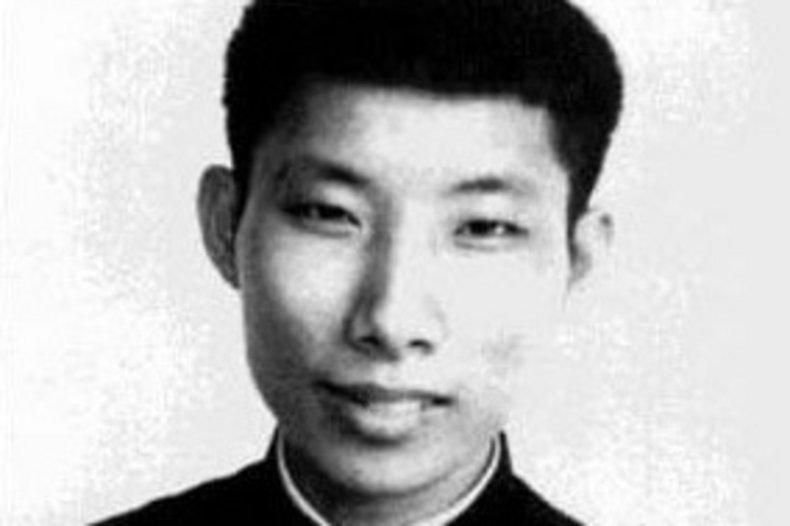
DR
Les raisons d'y croire :
- Van was always very discreet about the messages he received. Brother André, his best friend in the novitiate, knew nothing about them: he only discovered them fifty years later, when he helped with the cause for Van's beatification. The only person Van told was Father Antonio Boucher, his spiritual father.
- Van was always very obedient. When his spiritual father asked him to stop writing down what he received from Jesus, he respected his decision. He did not resume his recordings until he had received the order from this priest.
- The content of the messages Van received is theologically accurate. Moreover, Father Boucher, who assigned Van his readings, testified that Van could not have found the material for what he wrote in those books.
- Van wrote about things he couldn't possibly know, such as events in France or the fears of the Redemptorist sisters.
- The testimony of his spiritual father is eloquent: "I humbly admit that Brother Marcel taught me much more about the spiritual life than I was able to teach him myself [...]. His exemplary life, the limpidity of his soul, his perfect obedience to his director and his generosity in offering sacrifices give me a positive opinion concerning the veracity and authenticity of these communications, which of course, with all due reserve, I do not wish in any way to anticipate the final judgement, which rightly belongs to the Holy Church."
Synthèse :
Van was born into a devout Catholic family in the north of Vietnam on March 15, 1928. As a child, he was cheerful and determined, but also very mischievous. At the age of 6, he made his First Communion. Filled with happiness, he confided to his mother his desire to become a priest.
She took him to a parish where the priest took in young boys to train them for the priesthood. But during this training period, Van came up against the malice of the older boys, assigned to be "catechists" to the younger ones, who cruelly mistreated him. Not only was he beaten with a cane, but he was brought before a "people's tribunal" where he was humiliated and made to feel guilty for receiving communion every day. The tyranny of the catechists went so far as to confiscate his rosary, as well as the substitutes Van had invented by tying ten knots in his belt or passing ten beans from one pocket to another.
The winter of 1940-1941 was particularly hard: Van, abandoned by everyone, even his family, remained faithful... Christmas was approaching and, during a confession, the priest said to him: "You can believe that if God has sent you the cross, it is a sign that he has chosen you." During midnight mass, after receiving communion, Van, filled with happiness, realised that God had entrusted him with the mission of "turning suffering into happiness."
Van had always wanted to become a saint, but it seemed beyond his reach, "because to be a saint, you have to do a lot of difficult and extraordinary things." He instead envisioned holiness in the manner of Saint Augustine, who wrote: "Love and do what you want".
Van decided to read the life of a saint. He put all the books in the library on a table, closed his eyes and asked Mary to guide his hand to the right one. What a disappointment: he had picked St Therese of Lisieux' The Story of a Soul. Van was tempted to try again, but he had promised Mary that he would read the book he had randomly chosen! After two pages, he was crying tears of joy: he recognized his most secret thoughts on those pages written by a great saint. So he chose Saint Therese (d. 1897) as his spiritual sister. A few days later, she appeared to him and spoke to him at length. She told him that God had entrusted her to look after Van, that he was a "Father who only knows how to love and who wants to be loved".
Since childhood, Van had lived and existed only to be a priest. One day, Saint Therese told him that Jesus was not calling him to be a priest, but that his vocation was to be a "hidden apostle of love". Guided by Mary, he joined the Redemptorists.
Father Antonio Boucher, Van's spiritual father, asked him to write down his life and the conversations he had with Jesus, Mary and Therese. Father Boucher copied all Van's letters before he sent them (later published under the title of Correspondence). The writings of this little Redemptorist brother, penned a simple and direct style, open up a sometimes prophetic theological reflection, and reveal to us his great freedom of language with God.
In 1954, Vietnam was split in two. The North was communist. Van asked to return there, "so that there would be someone praying in the midst of the communists". and so on September 14, 1954, he traveled to Hanoi. On May 7, 1955, he was arrested and taken to a re-education camp. From prison, he was able to write a few words, at least in the early years.
The little Redeemer with Jesus that Van had always wanted to be died of exhaustion and illness in an internment camp at noon on July 10, 1959. He had obtained the final grace of dying in the presence of a priest. One day, he had written: "Love cannot die".
Father Olivier de Roulhac, postulator for the cause of beatification of Marcel Van
Au-delà des raisons d'y croire :
Van's wrote of himself:
- God has given me a mission: to change suffering into happiness. I don't get rid of suffering, but I change it into happiness.
- I don't look near or far; I only look at the One my heart loves.
- I am always joyful because I love.
In his preface to Other Writings, Cardinal Ouellet said: "I believe that Marcel Van's writings form a coherent whole that is a witness and a teaching not just for 'little souls'; it is a true ecclesial mission in the sense of a charism intended to build up the community, particularly in the sense of revitalising prayer, shedding light on the painful experience of love and raising the hope of young people. What can we conclude except that a star has risen in the East that belongs to a specific constellation in the Catholic firmament and that offers the Magi of East and West a light that leads to the Messiah of the Nations."
Aller plus loin :
Autobiography, by Marcel Van (Amis de Van Editions; January 1, 2017)
En savoir plus :- Article Marcel Van & the Little Way for Dummies
- Article Footsteps of Thérèse: Brother Marcel Van
- Article Marcel Van: The Littlest Redemptorist
- Marcel Van Association website
- Movie "Marcel Van - Turning Suffering into Joy… The Life of Marcel Van, a Redemptorist Brother" (Amis de Van/ Perles d'Histoire, 2018)
LES RAISONS DE LA SEMAINE
L’Église ,
Les saints ,
Les apparitions et interventions mariales

Saint Simon Stock reçoit le scapulaire du Mont Carmel des mains de la Vierge Marie
Les saints
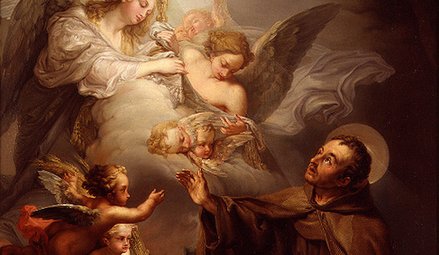
Saint Pascal Baylon, humble berger
Les saints ,
Corps conservés des saints ,
Stigmates

Sainte Rita de Cascia, celle qui espère contre toute espérance
Les saints

L’étrange barque de saint Basile de Riazan
Les saints ,
Corps conservés des saints
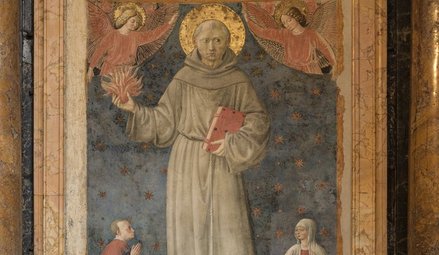
Saint Antoine de Padoue, le « saint que tout le monde aime »
Les saints ,
Conversions d'athées ,
Témoignages de rencontres avec le Christ
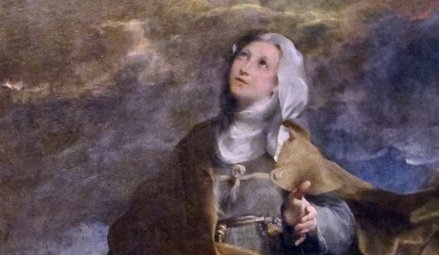
L’extraordinaire conversion de Micheline de Pesaro
Les saints ,
Les anges et leurs manifestations ,
Corps conservés des saints
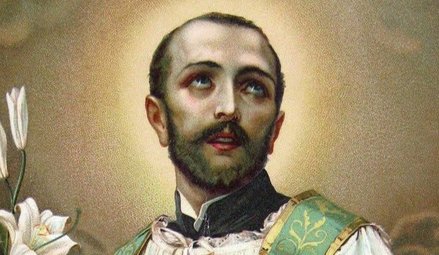
Saint Antoine-Marie Zaccaria, médecin des corps et des âmes
Les saints

Les saints époux Louis et Zélie Martin
Les saints ,
La profondeur de la spiritualité chrétienne
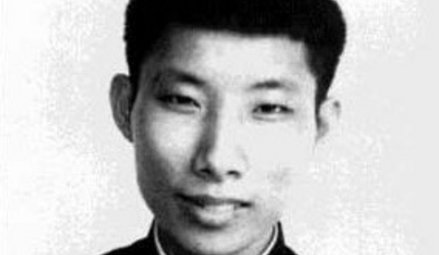
Frère Marcel Van, une « étoile s’est levée en Orient »
Les saints
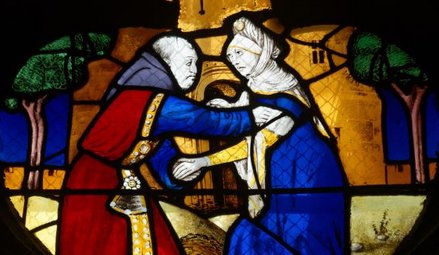
Sainte Anne et saint Joachim, parents de la Vierge Marie
Les saints
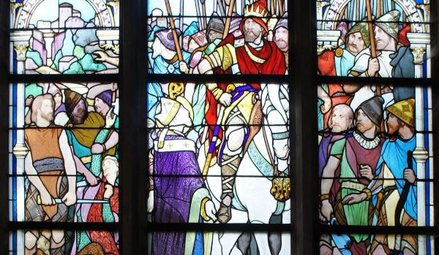
Saint Loup, l’évêque qui fit rebrousser chemin à Attila
Les saints
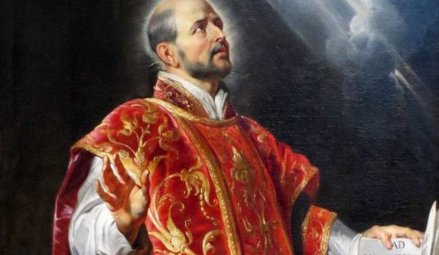
Saint Ignace de Loyola : à la plus grande gloire de Dieu
Les saints

Saint Nazaire, apôtre et martyre
Les saints ,
Des miracles étonnants ,
Guérisons miraculeuses

Saint Jean-Marie Vianney, la gloire mondiale d’un petit curé de campagne
Les moines ,
Les saints
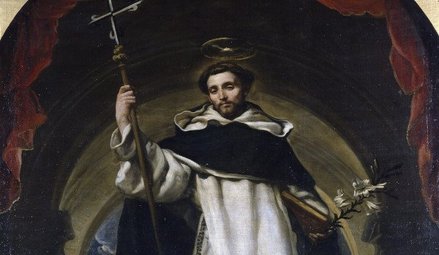
Saint Dominique de Guzman, athlète de la foi
Les saints ,
Témoignages de rencontres avec le Christ
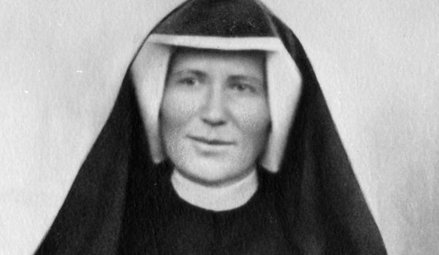
Sainte Faustine, apôtre de la divine miséricorde
Les moines ,
Lévitations ,
Stigmates ,
Conversions d'athées ,
Témoignages de rencontres avec le Christ
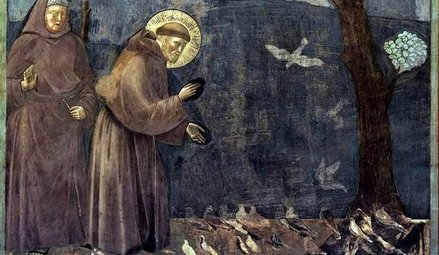
Saint François, le pauvre d’Assise
Les saints ,
Les grands témoins de la foi

Ignace d’Antioche : successeur des apôtres et témoin de l’Évangile
Les saints

Antoine-Marie Claret, un tisserand devenu ambassadeur du Christ
Les saints
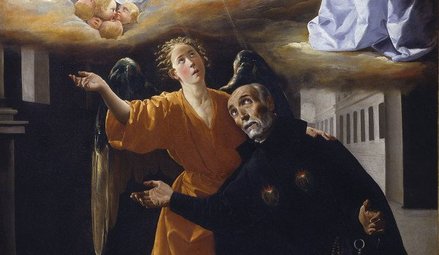
Alphonse Rodriguez, le saint portier jésuite
Les saints ,
Des miracles étonnants ,
Bilocations

Martin de Porrès revient hâter sa béatification
Les saints ,
Des miracles étonnants
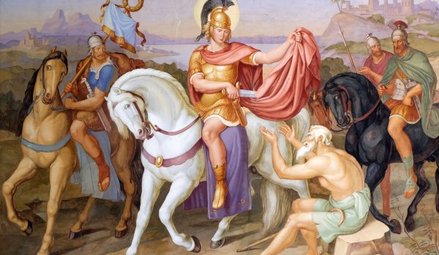
Saint Martin de Tours, père de la France chrétienne
Les saints
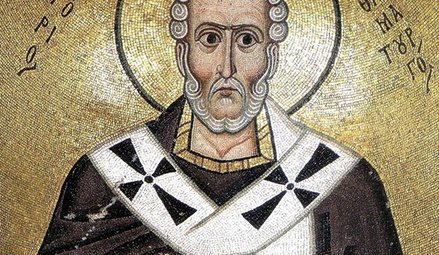
Saint Grégoire le Thaumaturge
Les saints ,
Une vague de charité unique au monde ,
Corps conservés des saints

Virginia Centurione Bracelli : quand toutes les difficultés s’aplanissent
Les saints
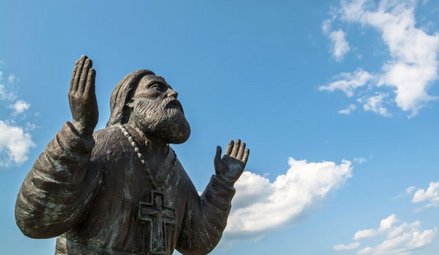
Lorsque le moine Seraphim contemple le Saint-Esprit
Les saints ,
Les apparitions et interventions mariales ,
Des miracles étonnants ,
Corps conservés des saints
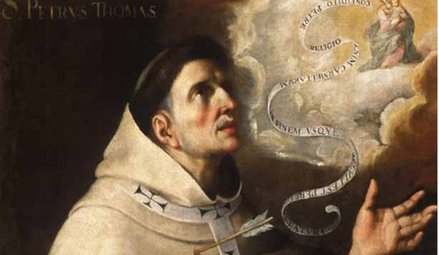
Saint Pierre Thomas : une confiance en la Vierge Marie à toute épreuve
Les saints
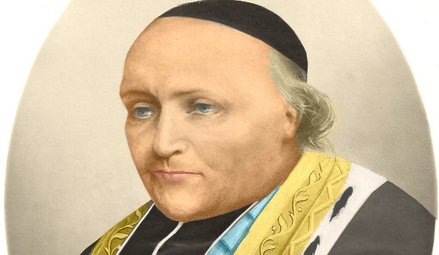
À Grenoble, le « saint abbé Gerin »
Les saints ,
Les apparitions et interventions mariales ,
Guérisons miraculeuses
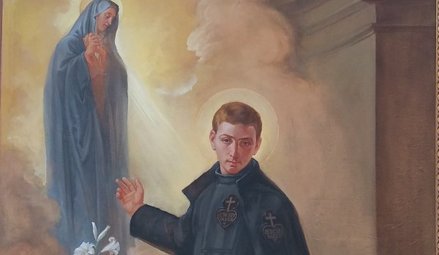
Gabriel de l’Addolorata, le « jardinier de la Sainte Vierge »
Les saints ,
Les mystiques ,
Des miracles étonnants ,
Corps conservés des saints ,
Histoires providentielles
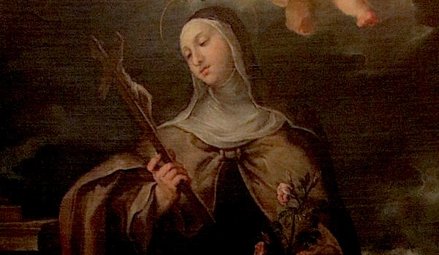
Sainte Rose de Viterbe : comment la prière change le monde
Les saints
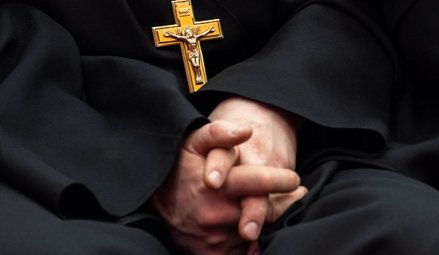
Bienheureux Francisco Palau y Quer, un amoureux de l’Église
Les saints ,
Les apparitions et interventions mariales
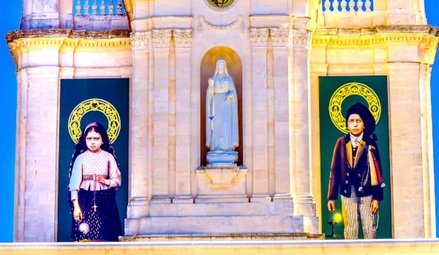
La maturité surnaturelle de Francisco Marto, « consolateur de Dieu »
L’Église ,
Les saints ,
Les apparitions et interventions mariales

San Simón Stock recibe el escapulario del Carmen de manos de la Virgen María
Les saints

San Pascual Baylon, humilde pastor
Les saints ,
Corps conservés des saints ,
Stigmates

Santa Rita de Casia, la que espera contra toda esperanza
Les saints ,
Les apparitions et interventions mariales
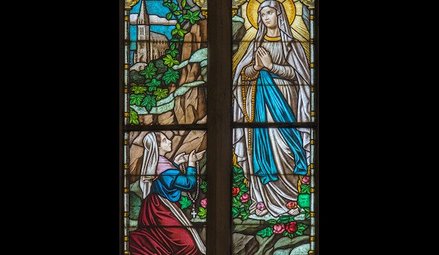
Bernadette Soubirous, bergère qui vit la Vierge
Les saints ,
Histoires providentielles
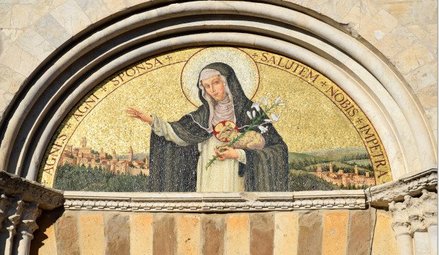
L’absolue confiance en Dieu de sainte Agnès de Montepulciano
Les saints

Sainte Catherine de Gênes, ou le feu de l’amour de Dieu
Les saints

Sainte Marie de l’Incarnation, « la sainte Thérèse du Nouveau Monde »
Les saints

Rosa Venerini ou la parfaite volonté de Dieu
L’Église ,
Les saints ,
Les apparitions et interventions mariales

Saint Simon Stock reçoit le scapulaire du Mont Carmel des mains de la Vierge Marie
Les saints

Saint Paschal Baylón: from humble shepherd to the glory of sainthood
Les saints ,
Corps conservés des saints ,
Stigmates

Saint Rita of Cascia: hoping against all hope
Les saints
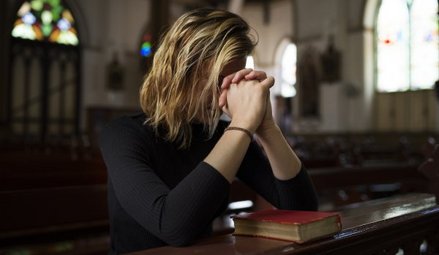
Camille de Soyécourt, comblée par Dieu de la vertu de force
L’Église ,
Les saints ,
Les apparitions et interventions mariales

San Simone Stock ricevette dalle mani della Vergine Maria lo scapolare del Monte Carmelo
Les saints

San Pascal Baylon, umile pastore
Les saints

François de Girolamo lit dans les cœurs
Les saints ,
La profondeur de la spiritualité chrétienne

Hermano Marcel Van, "una estrella ha nacido en Oriente".
Les saints ,
Corps conservés des saints ,
Stigmates

Santa Rita da Cascia, colei che spera contro ogni speranza
Les saints

La extraña barca de San Basilio de Riazán
Les saints
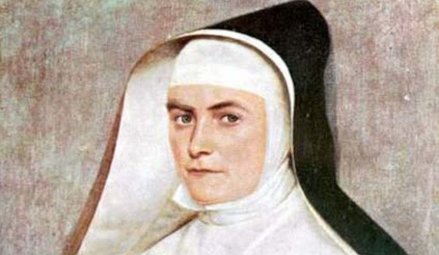
Jeanne-Antide Thouret : partout où Dieu voudra l’appeler
Les saints

The unusual boat of Saint Basil of Ryazan
Les saints ,
Corps conservés des saints

Saint Anthony of Padua: "everyone’s saint"
Les saints ,
Conversions d'athées ,
Témoignages de rencontres avec le Christ

The extraordinary conversion of Michelina of Pesaro
Les saints ,
Corps conservés des saints

San Antonio de Padua, el "santo que todo el mundo ama".
Les saints ,
Conversions d'athées ,
Témoignages de rencontres avec le Christ

La extraordinaria conversión de Micheline de Pesaro
Les saints
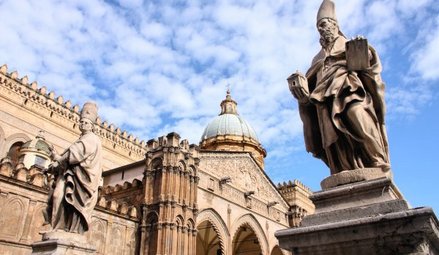
Saint Augustin de Cantorbéry apporte la bonne nouvelle sur la terre des Angles
Les saints ,
Les anges et leurs manifestations ,
Corps conservés des saints

Saint Anthony Mary Zaccaria, physician of bodies and souls
Les saints ,
La profondeur de la spiritualité chrétienne

Brother Marcel Van: a "star has risen in the East"
Les saints

Saints Louis and Zelie Martin
Les saints

La strana barca di San Basilio di Ryazan
Les saints ,
Corps conservés des saints

Sant'Antonio da Padova, il "santo che tutti amano"
Les saints ,
Les anges et leurs manifestations ,
Corps conservés des saints

San Antonio María Zaccaria, médico de cuerpos y almas
Les saints

Los Santos esposos Luis y Celia Martin
Les saints
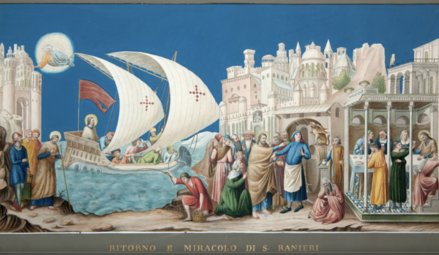
Saint Rainer de Pise : la conversion miraculeuse d’un riche négociant
Les saints ,
Conversions d'athées ,
Témoignages de rencontres avec le Christ

La straordinaria conversione di Michelina da Pesaro
Les saints
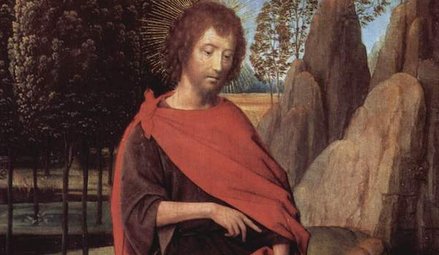
Saint Jean-Baptiste, témoin du Christ annoncé par les prophètes
Les saints ,
Les anges et leurs manifestations ,
Corps conservés des saints

Sant'Antonio Maria Zaccaria, medico del corpo e dell'anima
Les saints
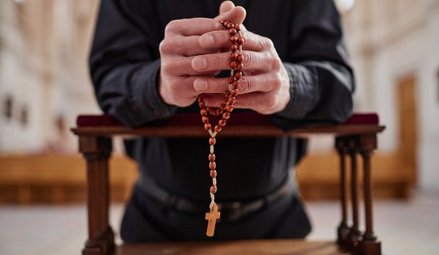
Saint Bernardin Realino répond à l’appel divin
Les saints

Santa Ana y San Joaquín, padres de la Virgen María
Les saints

San Nazario, apóstol y mártir
Les saints

San Lupo, el obispo que hizo retroceder a Atila
Les saints ,
Corps conservés des saints
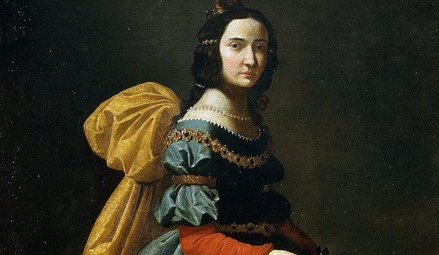
Sainte Élisabeth du Portugal, une rose en royauté
Les saints

San Ignacio de Loyola: a la mayor gloria de Dios
Les saints ,
Des miracles étonnants ,
Guérisons miraculeuses

San Juan María Vianney, la gloria mundial de un cura de pueblo
Les moines ,
Les saints

Santo Domingo de Guzmán, atleta de la fe
Les saints ,
La profondeur de la spiritualité chrétienne

Fratel Marcel Van, "una stella è sorta in Oriente"
Les saints

I santi sposi Louis e Zélie Martin
Les saints

Saints Anne and Joachim, parents of the Virgin Mary
Les saints

La confiance en Dieu de sainte Marie-Madeleine Postel
Les saints

Saint Nazarius, apostle and martyr
Les saints

Saint Lupus, the bishop who saved his city from the Huns
Les saints

Saint Ignatius of Loyola: "For the greater glory of God"
Les saints

Sant'Anna e San Gioacchino, genitori della Vergine Maria
Les saints

San Nazario, apostolo e martire
Les saints

San Lupo, il vescovo che fece indietreggiare Attila
Les saints

Sant'Ignazio di Loyola: per la maggior gloria di Dio
Les saints ,
Des miracles étonnants ,
Guérisons miraculeuses

Saint John Vianney (d. 1859): the global fame of a humble village priest
Les moines ,
Les saints

Saint Dominic de Guzman: an athlete of the faith
Les saints ,
Des miracles étonnants ,
Guérisons miraculeuses

San Giovanni Maria Vianney, la gloria mondiale di un piccolo curato di campagna
Les moines ,
Les saints

San Domenico di Guzmán, atleta della fede
Les saints ,
Témoignages de rencontres avec le Christ

Santa Faustina, apóstol de la Divina Misericordia
Les saints
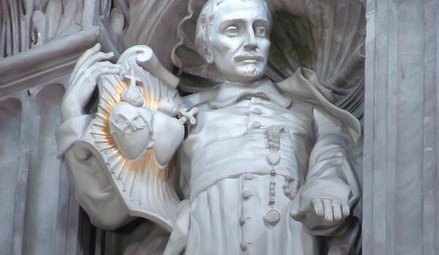
Jean Eudes, époux du Cœur Immaculé de Marie
Les saints ,
Témoignages de rencontres avec le Christ

Saint Faustina, apostle of the Divine Mercy
Les saints
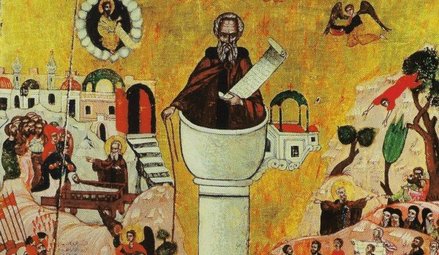
Syméon monte sur une colonne pour demeurer seul avec le Christ
Les saints ,
Témoignages de rencontres avec le Christ

Santa Faustina, apostola della divina misericordia
Les moines ,
Lévitations ,
Stigmates ,
Conversions d'athées ,
Témoignages de rencontres avec le Christ

Saint Francis, the poor man of Assisi
Les moines ,
Lévitations ,
Stigmates ,
Conversions d'athées ,
Témoignages de rencontres avec le Christ

San Francisco, el pobre de Asís
Les saints ,
Les grands témoins de la foi

Ignacio de Antioquía: sucesor de los apóstoles y testigo del Evangelio
Les saints ,
Les grands témoins de la foi

Ignatius of Antioch: successor of the apostles and witness to the Gospel
Les moines ,
Lévitations ,
Stigmates ,
Conversions d'athées ,
Témoignages de rencontres avec le Christ

San Francesco, il poverello d'Assisi
Les saints
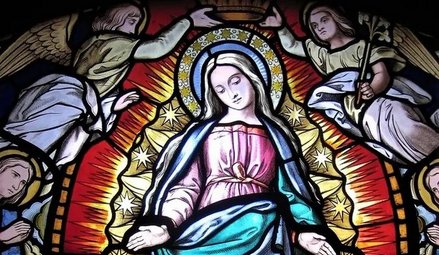
Thérèse Couderc remet tout entre les mains de Marie
Les saints

Brother Alphonsus Rodríguez, SJ: the "holy doorkeeper"
Les saints

Alonso Rodríguez, el santo jesuita portero
Les saints ,
Des miracles étonnants ,
Bilocations

Martin de Porrès regresa para acelerar su beatificación
Les saints ,
Des miracles étonnants ,
Bilocations

Martin de Porres returns to speed up his beatification
Les saints ,
Les grands témoins de la foi

Newman cherche la véritable Église du Christ
Les saints ,
Les grands témoins de la foi

Ignazio di Antiochia: successore degli apostoli e testimone del Vangelo
Les saints

Dieu parle par la bouche de la bienheureuse Madeleine de Panattieri
Les saints ,
Des miracles étonnants

Saint Martin of Tours: patron saint of France, father of monasticism in Gaul, and the first great leader of Western monasticism
Les saints
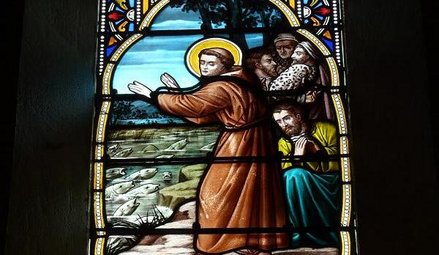
La « légende » des saints n’est pas un mythe
Les saints
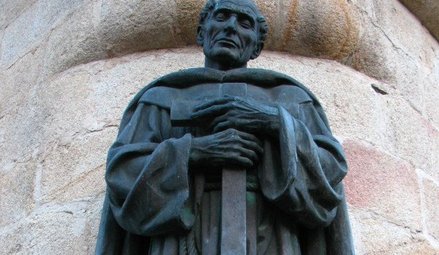
Pierre d’Alcantara, à qui Dieu ne refuse rien
Les saints

Saint Gregory the Miracle-Worker
Les saints

Alfonso Rodríguez, il santo portinaio gesuita
Les saints

Hilaire de Mende, un saint évêque thaumaturge
Les saints
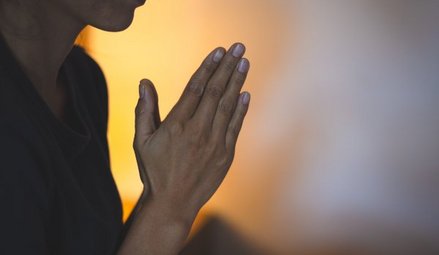
Celina Chludzinska, une vie entre les mains de Dieu
Les saints ,
Des miracles étonnants

San Martín de Tours, padre de la Francia cristiana
Les saints ,
Des miracles étonnants ,
Bilocations

Martín de Porres torna per accelerare la sua beatificazione
Les saints

San Gregorio Taumaturgo
Les saints
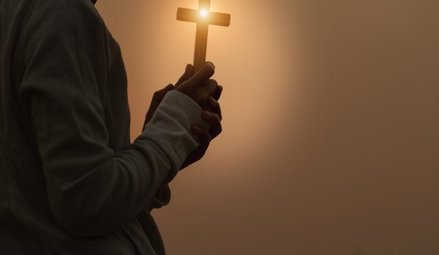
Le succès étonnant des prédications de saint Ange d’Acri
Les saints ,
Des miracles étonnants

San Martino di Tours, padre della Francia cristiana
Les saints

San Gregorio Taumaturgo
Les saints ,
Une vague de charité unique au monde ,
Corps conservés des saints

Virginia Centurione Bracelli: When God is the only goal, all difficulties are overcome
Les saints ,
Une vague de charité unique au monde ,
Corps conservés des saints

Virginia Centurione Bracelli: cuando las cosas se ponen difíciles
Les saints
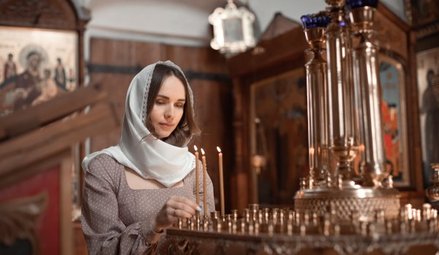
Le mariage virginal de bienheureuse Delphine de Sabran
Les saints

Jacques de la Marche transmet la foi catholique à travers l’Europe
Les saints ,
Une vague de charité unique au monde ,
Corps conservés des saints

Virginia Centurione Bracelli: quando tutte le difficoltà vengono meno
Les saints

Seraphim of Sarov: the purpose of the Christian life is to acquire the Holy Spirit
Les saints ,
Guérisons miraculeuses
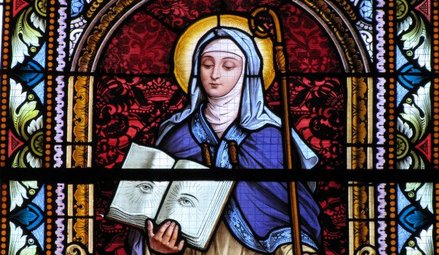
Née aveugle, sainte Odile retrouve la vue lors de son baptême
Les saints ,
Les apparitions et interventions mariales ,
Des miracles étonnants ,
Corps conservés des saints

Saint Peter Thomas: a steadfast trust in the Virgin Mary
Les saints

Cuando el monje Serafín contempla al Espíritu Santo
Les saints
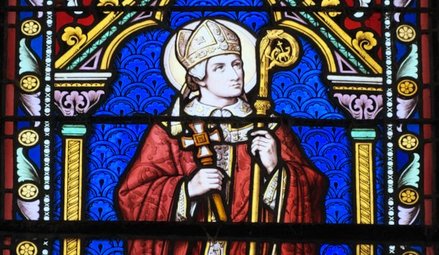
Gatien, apôtre de la Touraine
Les saints
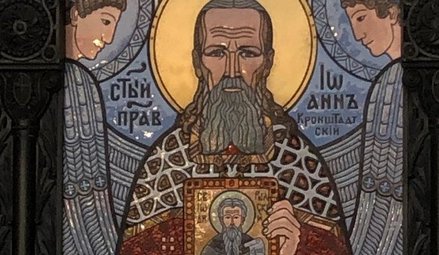
La vie en Jésus Christ de Jean de Cronstadt
Les saints ,
Les apparitions et interventions mariales ,
Des miracles étonnants ,
Corps conservés des saints

San Pedro Tomás: una confianza inquebrantable en la Virgen María
Les saints

Quando il monaco Serafino contemplava lo Spirito Santo
Les saints
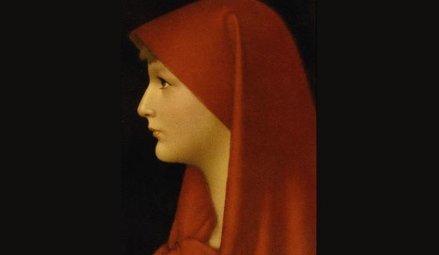
La grande conversion de Fabiola
Les saints
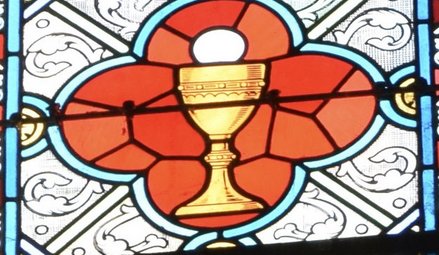
Gaspard del Bufalo, le prêtre qui a dit non à Napoléon
Les saints ,
Les apparitions et interventions mariales ,
Des miracles étonnants ,
Corps conservés des saints

San Pietro Tommaso e la sua fiducia incrollabile nella Vergine Maria
Les saints

Mélanie la Jeune : par le chas d’une aiguille
Les saints
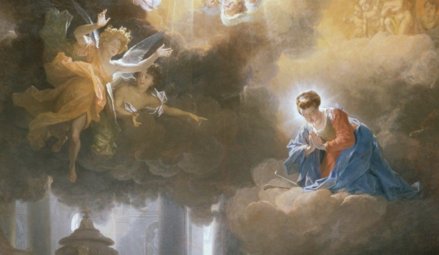
Sainte Geneviève, patronne de Paris
Les moines ,
Les saints
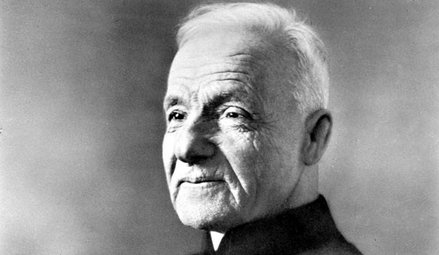
Saint André Bessette, serviteur de saint Joseph
Les saints

Saint Remi, l’évêque qui baptisa le roi des Francs
Les saints

Father Gerin, the holy priest of Grenoble
Les saints

Saint Ildefonse de Tolède, défenseur de la Vierge Marie
Les saints

A Grenoble, il "santo abate Gerin"
Les saints ,
Les apparitions et interventions mariales ,
Guérisons miraculeuses

Gabriel of Our Lady of Sorrows, the "Gardener of the Blessed Virgin"
Les saints
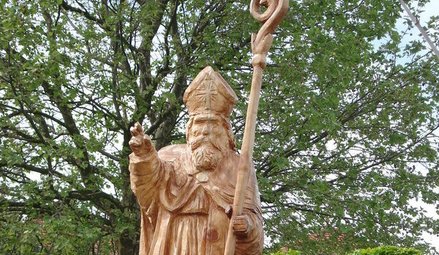
Saint Avit de Vienne affirme la divinité de Jésus
Les saints
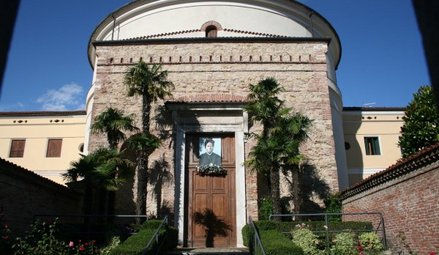
Sainte Joséphine Bakhita, de la souffrance à l’amour
Les saints

En Grenoble, el "santo abate Gerin".
Les saints ,
Les mystiques ,
Des miracles étonnants ,
Corps conservés des saints ,
Histoires providentielles

Saint Rose of Viterbo: how prayer changes the world
Les saints ,
Histoires providentielles
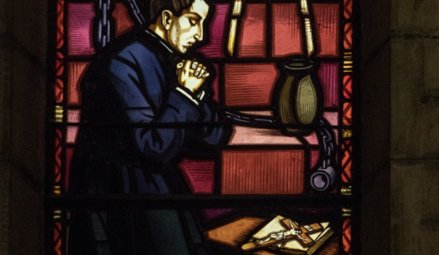
Claude La Colombière prédit son emprisonnement
Les saints ,
Les apparitions et interventions mariales ,
Guérisons miraculeuses

Gabriel de l'Addolorata, el "jardinero de la Virgen María"
Les saints ,
Les mystiques ,
Des miracles étonnants ,
Corps conservés des saints ,
Histoires providentielles

Santa Rosa de Viterbo: cómo la oración cambia el mundo
Les saints ,
Les apparitions et interventions mariales ,
Guérisons miraculeuses

Gabriele dell'Addolorata, il "giardiniere della Vergine Maria"
Les saints ,
Les mystiques ,
Des miracles étonnants ,
Corps conservés des saints ,
Histoires providentielles

Santa Rosa da Viterbo: come la preghiera cambia il mondo
Les saints








